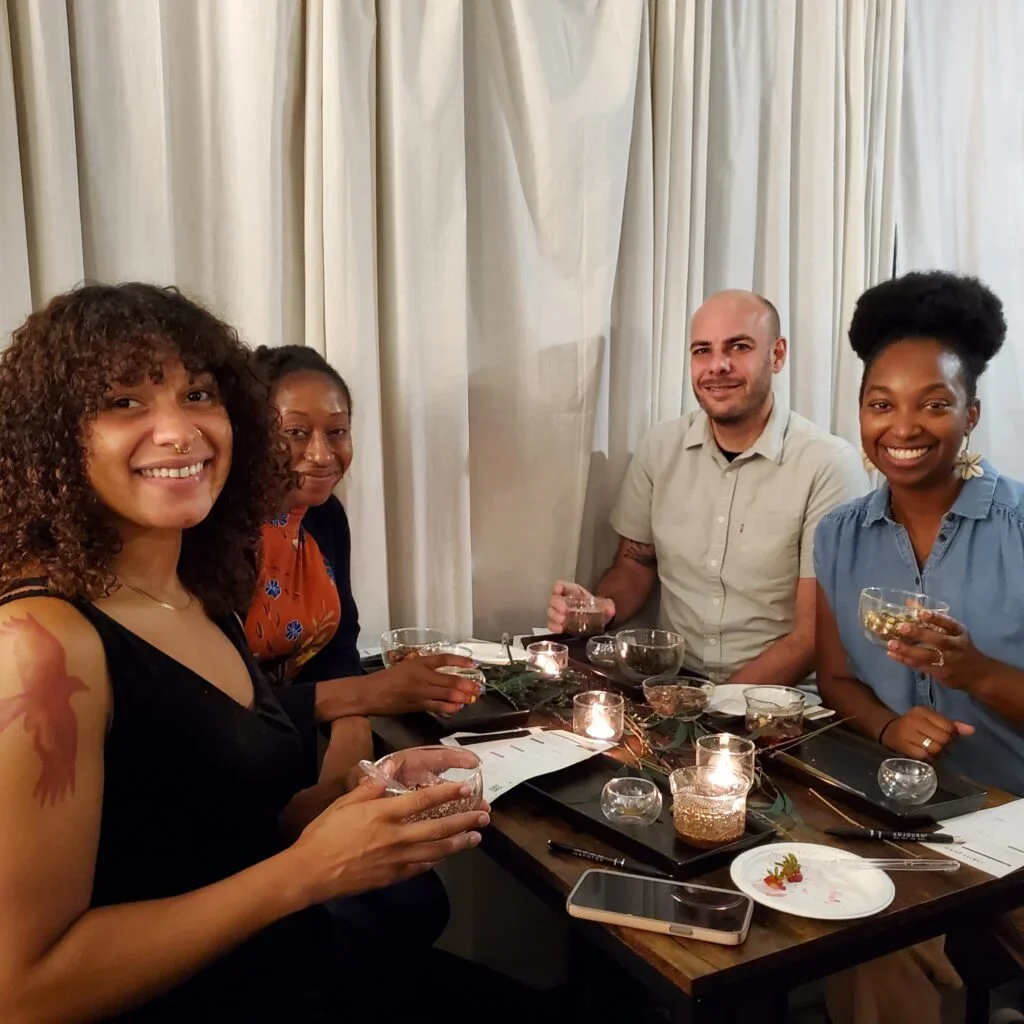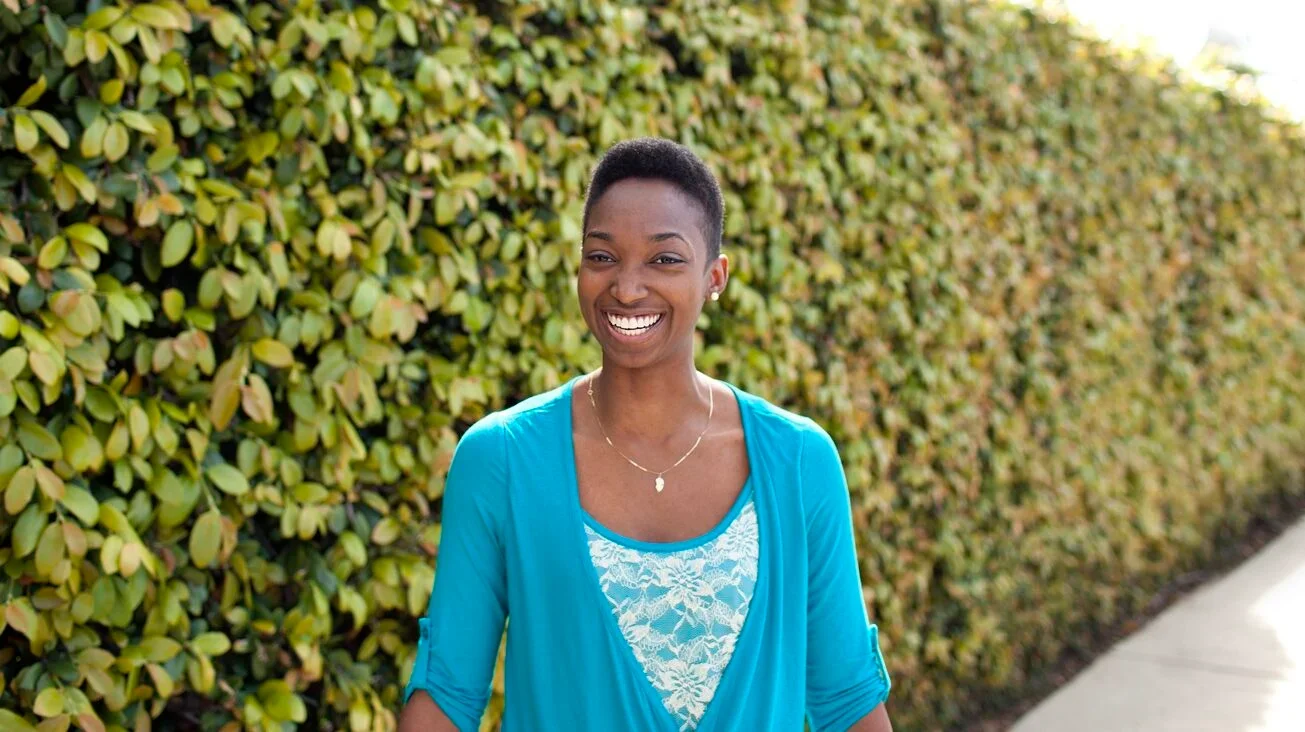Amani Morrison, Ph.D., an assistant professor in the Department of English, is bringing attention to a crucial part of Black history: the significance of the kitchenette apartment building in mid-twentieth century Chicago. In addition to writing a first-of-its-kind book about kitchenettes during this time period, Morrison has started a digital humanities project with Georgetown students.
Read More About Dr. Amani Morrison’s ResearchInterdisciplinary Research Team Begins Yearlong Inquiry into Restorative Black Ecologies and Spaces
An interdisciplinary team of Georgetown researchers is beginning a yearlong inquiry into the past, present and future of Black ecologies. Led by Amani Morrison, an assistant professor in the Department of English, the researchers will explore restorative Black placemaking practices that can be maintained for future generations.
Funded through the Andrew Mellon Foundation as part of its Sawyer Seminars series, Creative Placemaking, Black Restorative Ecologies and Black Spacial Futures will include reading group meetings, public-facing roundtables, film screenings and local site visits.
“Our seminar will explore the possibilities of place for a future of Black existence,” said Morrison. “We will look at the social and natural terrains that Black folks navigate on a day-to-day basis and how we might account for those and invest in place-based Black futures.”
Defining Black Ecologies
Black ecologies is a budding, interdisciplinary field that focuses on the relationship between people and their environments. Researchers typically include natural environments, built environments and social environments in their analyses. For Morrison, studying Black ecologies is necessary for a more sustainable future.
“For me, the restorative is embedded in the study of Black ecologies,” said Morrison. “When putting together this proposal, I wanted to think about restoration holistically, looking at Black epistemologies and ways of being that are already restorative.”
Black farmers who are equally mindful of their environment and community are one example Morrison cites. The cultural and practical knowledge of people currently enacting restorative practices will inform the group’s inquiry.
“We don’t necessarily always have to recreate the wheel,” says Morrison. “There are lessons in our past and present that can help us think about the where of Black futures in addition to the how.”
Building an Interdisciplinary Team

From left to right: Raychel Gadson, Rosemary Ndubuizu, Tim Kumfer and Amani Morrison participate in a tea-blending session.
Interested in building a team with diverse experiences and complementary skill sets, Morrison connected with two other academics who call the College of Arts & Sciences home – Rosemary Ndubuizu and Zandria Robinson.
Nbuduizu, an assistant professor in the Department of African American Studies, researches the influence of race, class and gender on housing policy. Robinson, a sociologist who teaches in the same department, has published books on Black urbanism in America and Black identities and communities in the South.
“Our team of investigators centers the specificities of place in Black ways of knowing, being, building and strategizing in the US,” said Morrison. “I wanted to build from that investment in place-based epistemologies to ground the Sawyer Seminar’s work.”
In addition to the three investigators, the grant supports two dissertation fellows and a postdoctoral fellow. The team selected Raychel Gadson and Dominique Hazzard, both doctoral candidates at Johns Hopkins University, as dissertation fellows. Timothy Kumfer, who received his Ph.D. from the University of Maryland and has conducted extensive research and programming within the DMV area, is the team’s postdoctoral fellow. The group’s extensive expertise in and ties to the immediate community will enhance its work, says Morrison.
A Year of Programming
Named for the Mellon Foundation’s longest-serving president, the Sawyer Seminars have provided unique, exploratory spaces for cutting-edge research since 1994.
Georgetown has played host to two prior Sawyer Seminars. The first, led by Michelle C. Wang and James Millward, critically examined the invention and development of the concept of the Silk Road. It was also the first Sawyer Seminar in the greater Washington, DC area. In 2016, Dana Luciano, John R. McNeill and Nathan Hensley began a seminar that examined the ways humans interact with and change their environments.
“In line with Mellon’s mission, we want this seminar to be about actively thinking and planning, bringing folks together to not only think about new ideas, but using those ideas to generate new lines of inquiry and practices,” said Morrison. “I’d like some of our public conversations to be recorded, so there’s an archive of our work. We’ll be encouraging wider participation in our events.”
The seminar’s programming will seek to engage a wider community, including both students and faculty on-campus and interested parties in the wider metropolitan area.
The first two events will feature conversations on pressing topics. Weathering the Weather: Building Climate-Resilient Black Futures will be held on October 18 and Insurgent Black Ecologies will be held on November 8. More details can be found on the group’s website, Twitter and Instagram.
Related News

Approaching the Anthropocene: Global Culture and Planetary Change is a series of lectures, art installations, and group discussions that critically examine the ways humans interact with and change their environments. It is funded through the Andrew W. Mellon Foundation as part of the Sawyer Seminars, which support comparative research on history and contemporary culture.
Approaching the Anthropocene, Humanists Tackle Environmental Issues
